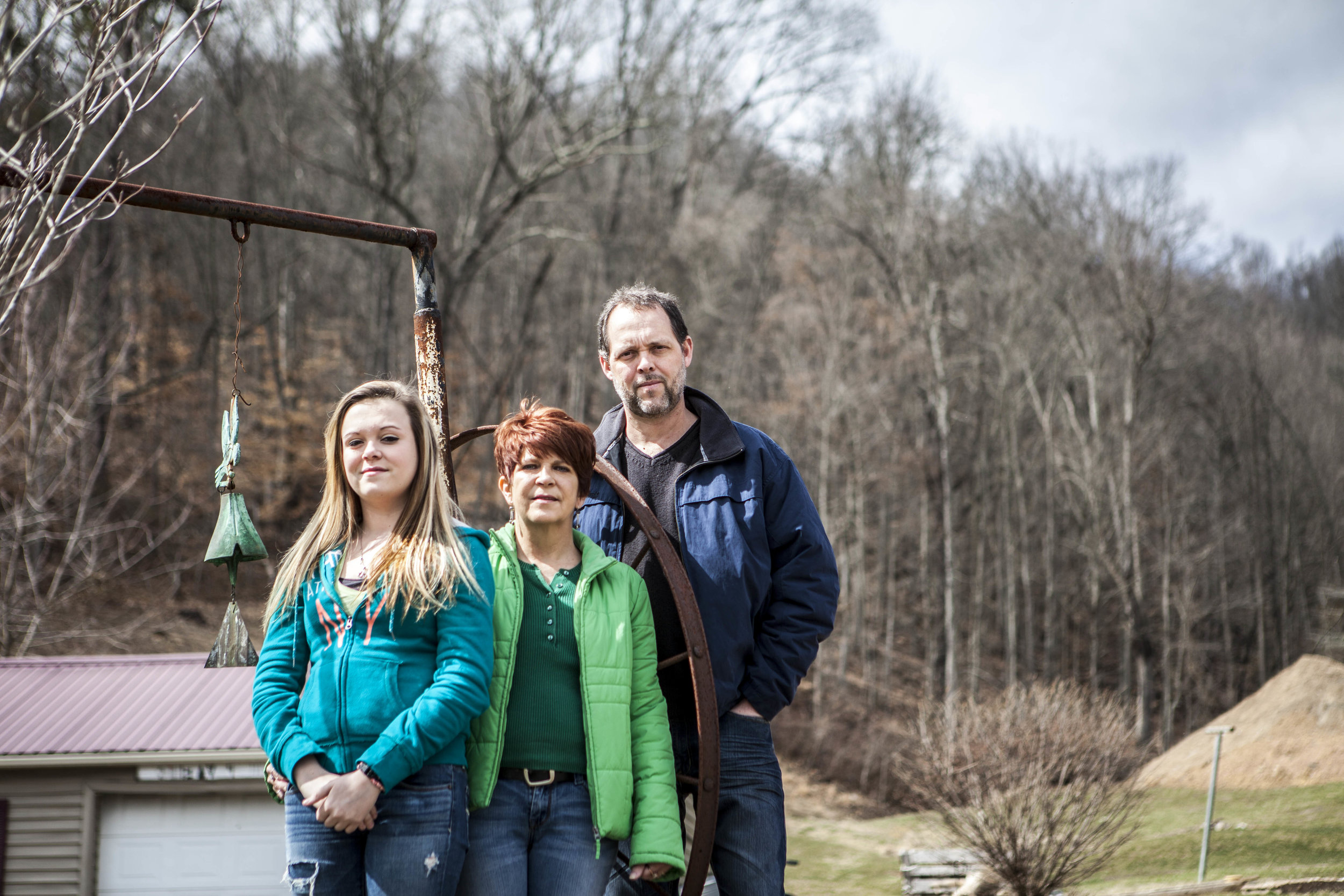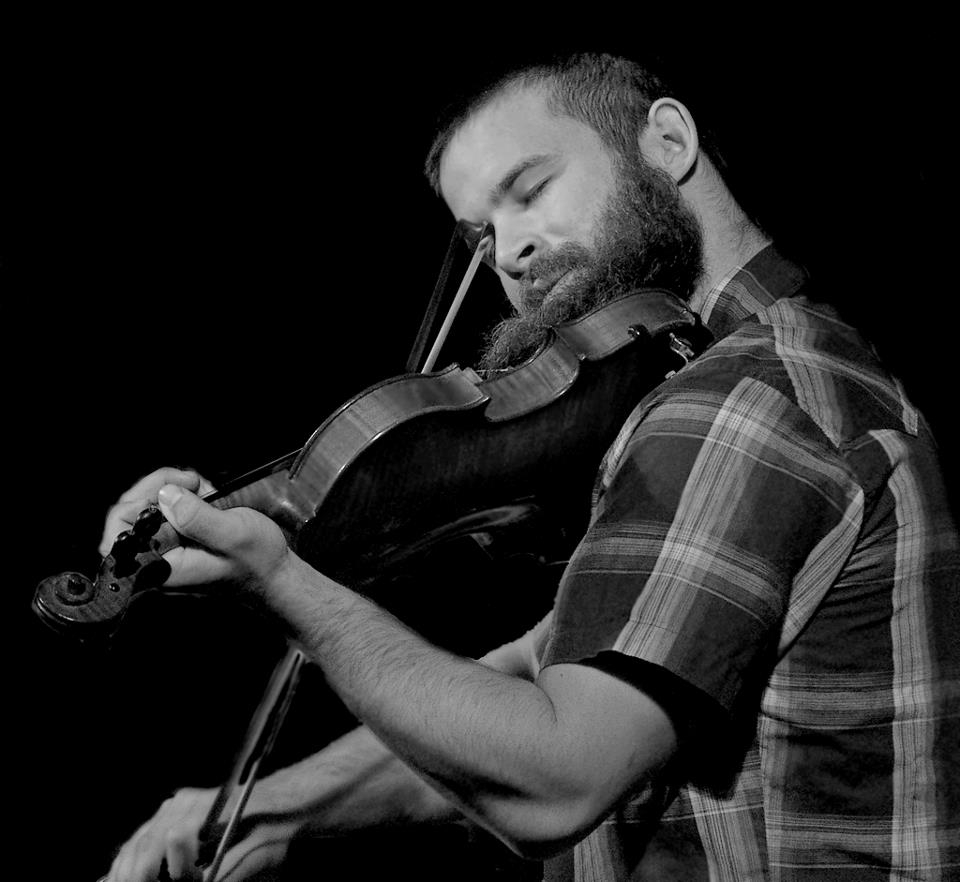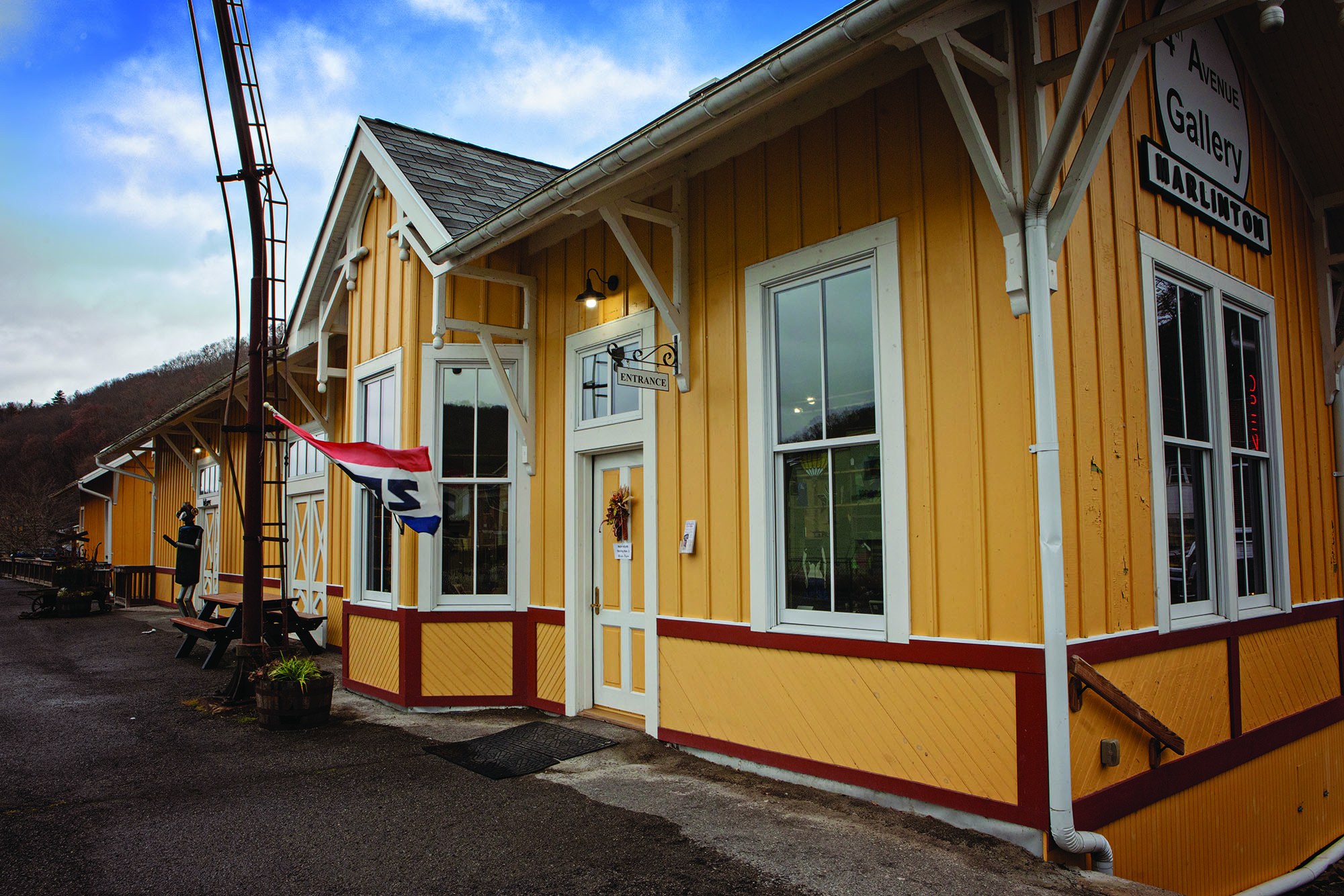What We Play Is Life

By Barbara Elliott
Paolo and Erica Marks were destined to meet. Both were raised in Virginia in talented musical families. They each studied cello and spent their adolescent summers going to chamber music camps. Amazingly, their paths did not cross until they met at FloydFest, the eclectic world music festival held in Floyd, Virginia each summer. Fortunately for West Virginia, they have now crossed the Alleghenies and established a musical homestead in Pocahontas County.
Paolo Marks is an accomplished cellist who once had thoughts of pursuing a career as a classical performer, but found his true calling when the bridge of his cello needed repairing while he was a student at Indiana University.
“I had heard there was a shop on the top floor where you could get repairs done. I took the cello to get it fixed and saw these instruments being made,” he explains.
He discovered that the university had a program in instrument making, and he was hooked. Although he had done woodworking all his life, instrument making was another realm.
“In the beginning, you don’t know what you don’t know,” he recalls. “You start with the real basics—how to sharpen your tools and do basic woodworking. The more you do, you realize there’s a whole world of improvement.”
After completing the program at Indiana, he apprenticed with masters in Nova Scotia and Holland on his path to becoming a luthier, a craftsman of who makes stringed instruments. He primarily makes violins and violas, although he recently made his first mandolin for a neighbor. He also repairs violins, which he finds can be even more challenging than making them because you are fixing other people’s mistakes. Work comes to him mostly by word of mouth, although he does have a website, www.paolomarksviolins.com.
It’s painstaking work, almost all done by hand to a meticulous standard. The walls of his sunlit studio are filled with chisels, gouges, files, calipers, compasses and other tools of his trade. The house itself gives him an outlet for less exacting labors. His entire family enjoys refurbishing houses, even his mother, so he has had a lot of help renovating the house to accommodate his workshop and his growing family. He enjoys the difference in violin making and carpentry, remarking that after working on a violin for hours, it feels good to knock down a wall or two.
It was Erica who first discovered Pocahontas County. Although she began her studies at Roanoke College as a music major studying cello with Kandinsky Trio cellist Allen Weinstein, she decided later to change her major to biology with a minor in music. She continued to perform at weddings and in quartets, but said she didn’t aspire to a higher level of musical study after college. She went on to become a science teacher, working at schools in Virginia, New England and Peru before arriving in Pocahontas County to serve as co-director of High Rocks, a leadership program for girls based near Hillsboro.
It didn’t take long for Erica to be pulled into the eclectic arts scene in the county. Margaret Baker, who directs plays for the Pocahontas Drama Workshop, convinced her to play the lead role of a troubled mathematical genius in David Auburn’s play, Proof, in 2007. She also discovered there was a lively musical community in the county who enjoyed getting together and playing music together at any opportunity.
Paolo was also drawn to the scenic beauty and rich musical heritage in the county. Eventually, the couple, who at that point had been dating for some time, decided to marry and settle there. In 2007, they purchased a rambling farmhouse on Lobelia Road, which Erica jokes “will, until we die, be known as Johnnie Hill’s house.” Johnnie and Madeline were life-long county residents who were much beloved in the Hillsboro community. Living in their house has given the Marks family a certain cachet in the neighborhood. The location of the house very close to the road is a factor too.
“It’s the nature of living right on the road. We’d get advice on things like stacking wood. When we first moved in, we had lots of visitors,” Erica remembers. “This is exactly what I was looking for, this environment and community. We felt lucky to be welcomed so graciously.”
In 2009, the couple welcomed their first daughter, Asa, and in 2012 a second daughter, Sal, was born. They have settled into a home-based life where they can share their parenting responsibilities while pursuing their musical interests.
Erica now works for Grow Appalachia, an offshoot of High Rocks which aims to increase access to healthy local food for families and help the program’s youth have healthier beginnings. The program partners with local schools to plant school gardens and educate children and teens about gardening in after-school and summer programs. It also gives gardening support to 30 families, two market gardeners, and three other community gardens.
She has arranged her schedule so that she only goes into the office two days a week, allowing plenty of opportunity to spend time at home with the girls and Paolo, work in her own garden and practice for the occasional performance gig that comes their way.
“When we started our family, I wanted something flexible so we could appreciate where we live. It is nice to be working in the garden and hear Paolo scraping inside,” Erica says.
Paolo agrees, noting that his work is determined by what Erica is doing. When she is at the office, he switches off from his violin making to look after the girls.
“It’s exciting that we can be here and be really present with our family. It’s a sustainable, low-impact lifestyle,” he says.
It’s a lifestyle imbued with music. Although both were trained in the classical tradition, they play everything from Mozart and Bach cello duets to traditional and Irish tunes and waltzes. They perform together at weddings, receptions and special events throughout the region, and Paolo occasionally performs with classical ensembles such as the chamber orchestra that accompanied the Greenbrier Valley Chorale’s Messiah performance several years back.
They write and sing original music too, more in the “traditional and folksy” style, according to Erica. They both play violin in addition to cello. Paolo did not begin playing violin until he made his first one, when it occurred to him that he should learn to play the instrument if he was going to make them. Erica had started out studying violin before her switch to cello. She notes with a laugh that it can be a bit hard to sing and play the cello at the same time.
To their delight, they have discovered music nights at different venues throughout the Greenbrier Valley where the style can range from classic rock to bluegrass. Erica admits she is “not as devoted to the nuances of old-time music” as some other styles, but for the most part, they like to play just about anything as long as it is played well.
Paolo says they agree with the great jazz trumpeter, Louis Armstrong, who said “There is two kinds of music, the good, and the bad. I play the good kind.”
Music has been a constant presence in both their lives since childhood. Paolo’s father was a violinist with the Vancouver Symphony, and he began his musical studies at age six. His five brothers are professional musicians, including one who is also a luthier. Erica’s father was a string teacher and her brother is a professional jazz trumpeter. She started violin lessons with her dad at age six and switched to cello at age eight, thinking it would be nice to have a different sound in the house.
They are now passing that legacy along, sharing their passion for music with their daughters. They don’t have dreams that either will become professional musicians. They just enjoy taking them along to jam sessions and having them join in that enriching aspect of their lives.
“It seems like when we go to any social function, we pack a car seat, diaper bag and one or two cellos,” Erica laughs.
Although she isn’t taking formal classes, Asa does have a tiny violin that she likes to bring to these events, and her onstage appearances can be real showstoppers--sometimes literally--her mother says.
The night before our interview, the entire family had been to the Pocahontas County Opera House for Opry Night, an annual showcase for all the great old-time and bluegrass musicians who live and play in the area. The place was overflowing with music lovers who had come not only to hear great music, but to raise money for a scholarship in memory of Alan Dutchess, a gifted old-time musician and teacher who had died a few weeks before. The outpouring of love at that event typifies the spirit that so richly blesses the life Paolo and Erica have created for their young family.
Louis Armstrong was a very wise man. He once said, “What we play is life.” The Marks family is living proof.




